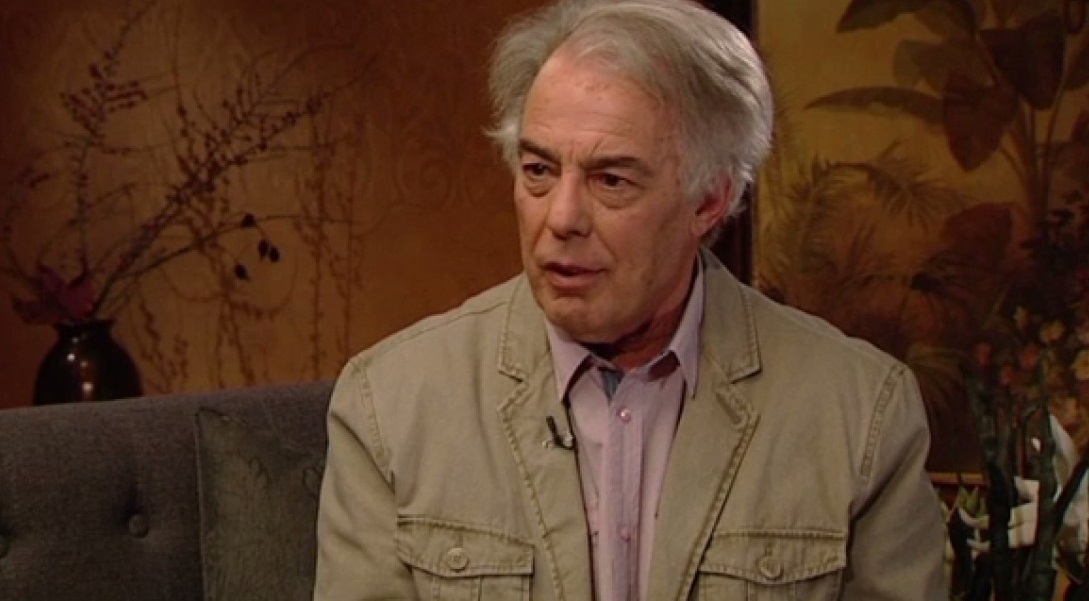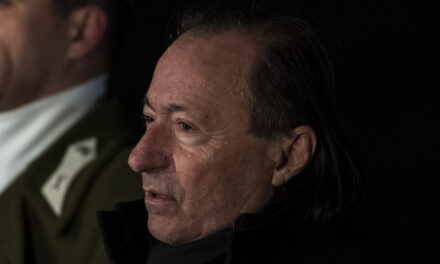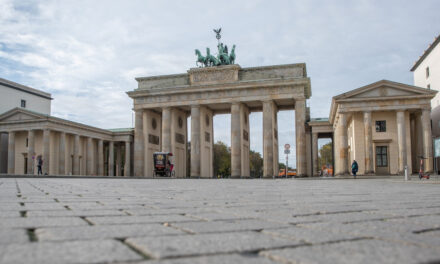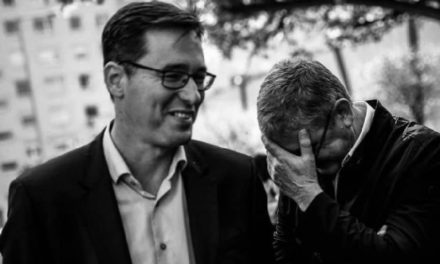He worked on television for 40 years as a presenter, editor, and reporter, he prepared the famous pajama interview with Prime Minister József Antall, and he suffered the trials of the equally famous Kónya-Pető debate. We talked with Péter Feledy about television, the authenticity of the movie Blockade, and when Gyula Horn disappointed the TV legend.
He attended the law faculty of ELTE, became a prosecutor, and then in 1971 entered the competition "A Reporter is Wanted", which he won. Why did you wink at the legal career?
The choice of a career in law was accidental, not some kind of childhood dream. I was even admitted to the College of Physical Education after graduation, so I had other ideas. But many of my acquaintances studied law, and I myself considered it a field that prepares you for many things. I thought it would be a pleasant couple of years, but in the meantime I got bored, I repeated one year, and even then I knew that I wouldn't be a lawyer for long.
Who steered him in this direction?
No one, I distracted myself, the prosecutor's career seemed interesting. I was a draftsman for a year or two, then I passed the professional exam, then due to the whims of fate, I entered the Capital, then the XVIII-XIX. I was sent to the District Prosecutor's Office. And I got married, but my first wife didn't like Budapest, she grew up in Sárvár in an intellectual family, she definitely wanted the countryside, so we took advantage of the tender opportunity and won Derecské near Debrecen. He became a lawyer by accident, and I - as a subordinate - created the Derecske Traffic Prosecutor's Office with myself. By the way, Derecske was also a rich agricultural settlement and district seat. So I lived here until the "Reporter Wanted" was announced, and this is also where I decided to enter, many of my colleagues won in the previous series, I knew almost everyone from the top.
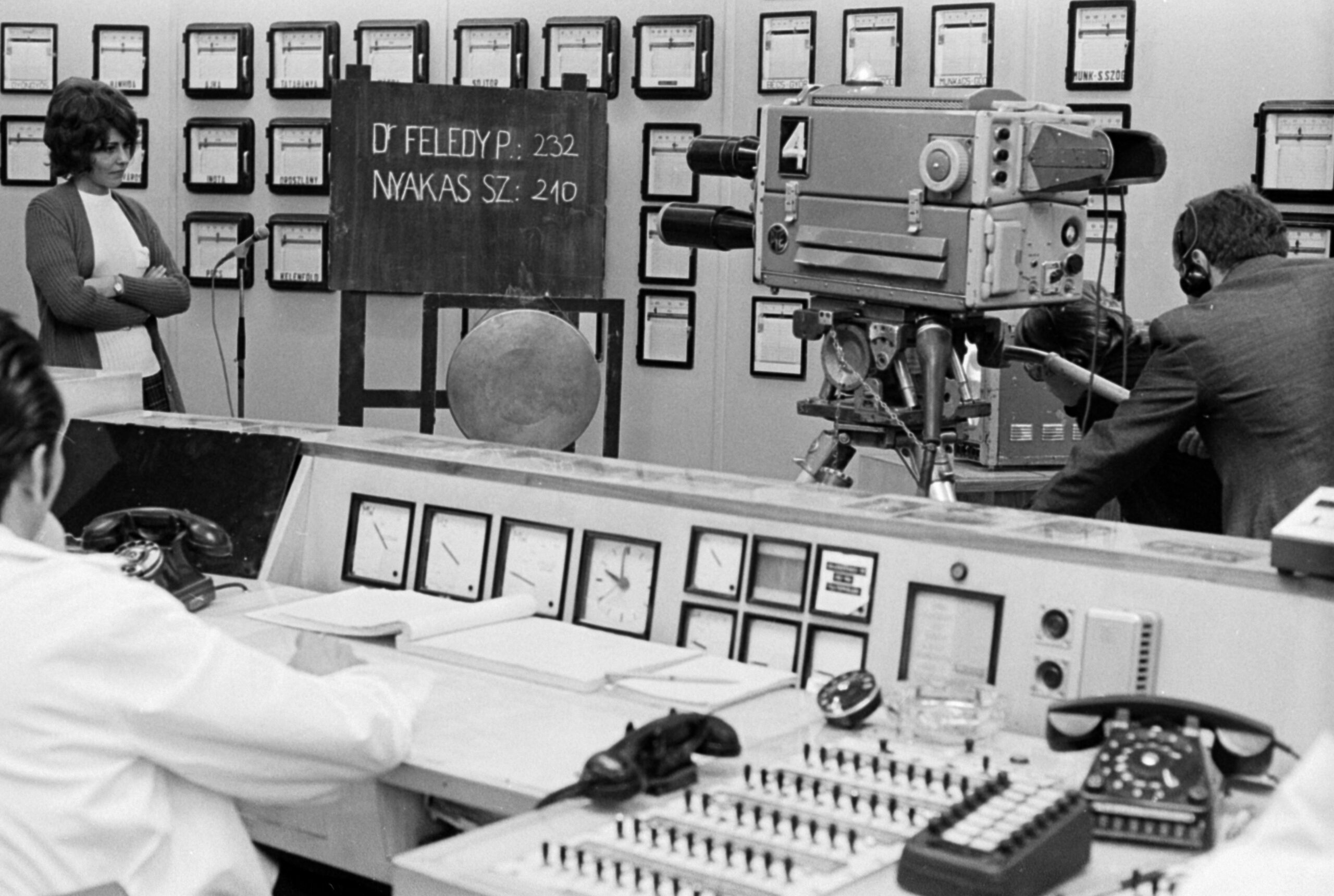
Fortepan / Zoltán Szalay / The control room of the National Electric Load Distributor (OVT) of Magyar Electric Works is located in the basement system accessible from Úri utca 72. The recording was made during the finals of the Reporter wanted contest, during the light switch voting.
Then what happened?
We moved to Pest, but finding an independent apartment was hopeless, but very good ones could be rented, and after some searching we found a suitable one. Unfortunately, however, my wife's anti-Budapest attitude did not change, and our marriage somehow cooled in the meantime.
During the taxi blockade, you conducted the memorable pajama interview with József Antall, a scene that is also heavily emphasized in the film Blockade. What do you think, did the producers manage to recreate that prime ministerial interview faithfully?
Trouble broke out on Friday, didn't it? That morning, I thought that I would invite MDF and SZDSZ politicians in the evening to discuss the matter, to clash opinions.
Are we talking about the show The Window?
Yes, Ablak already went down every Friday, with speakers such as MDF Minister Balázs Horváth, Iván Pető from SZDSZ or Gábor Fodor from Fidesz. Then I was called to work on Saturday as well, but I didn't want to go, because the majority of the TV people were opponents of the MDF.
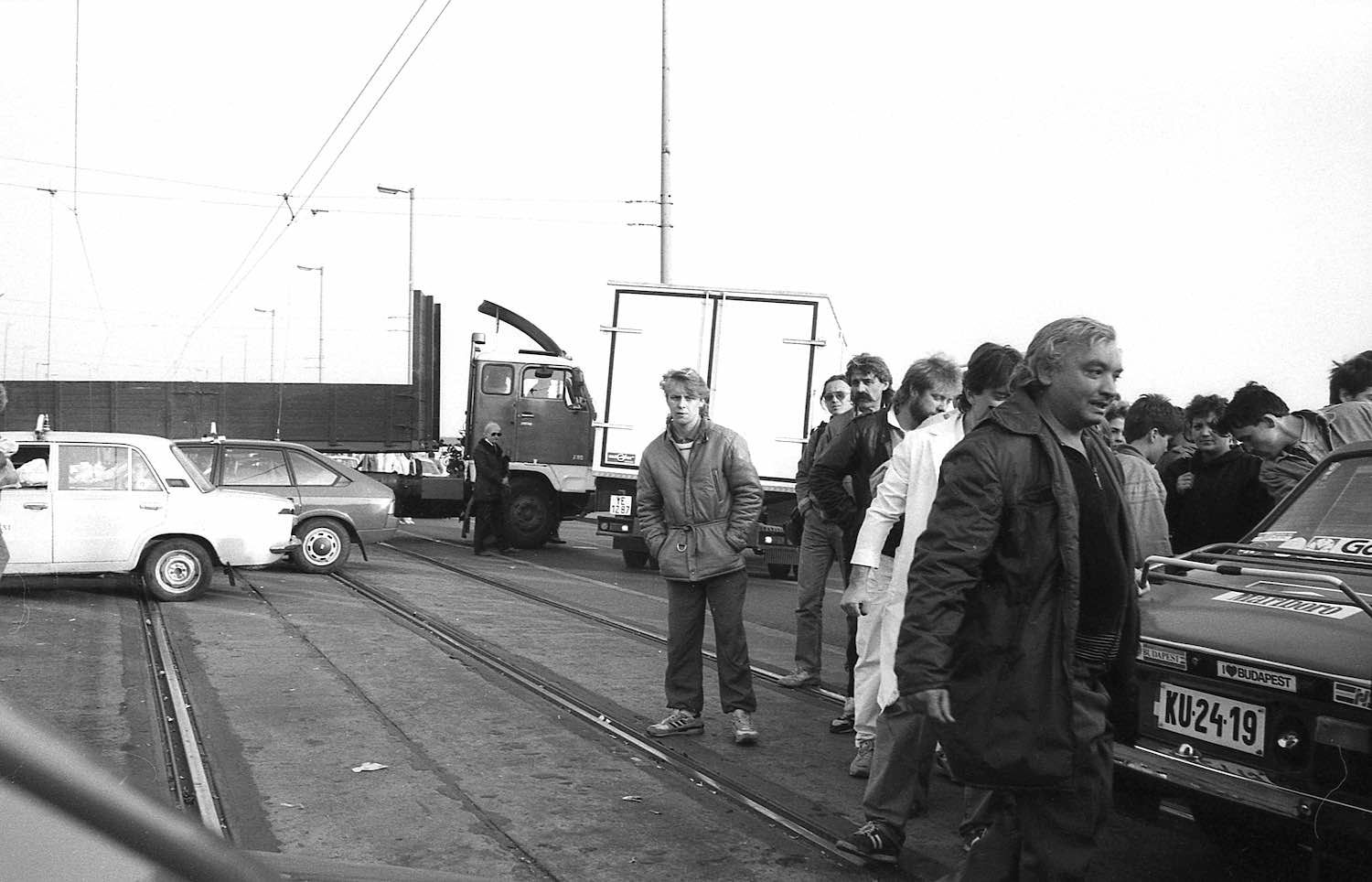
Taxi blockade on Margaret Bridge in 1990. Photo: Fortepan/Zoltán Szalay
The film reflects this.
Yes. So I didn't feel like it, because I saw what they were doing, who they were calling in, and I said no. Early Sunday afternoon, István G. Pálfy, the editor-in-chief of the news station, called me and said that it looks like an interview with József Antall can be done in the evening. Anyway, I did at least 3-4 interviews with him before that.
His room is presented in the movie as a well-maintained, well-equipped room, but in reality it was not, in reality he was lying in a dilapidated room where even the wall-mounted television did not work.Why didn't you go to an elegant room? Apparently there was one in Kútvölgyi as well.
Of course it was, but he asked for the room himself, because his father also died in that room, and later his mother did too. This is said in the film, but the sets do not reflect the depressing desolation of the original ward.
Does the film faithfully reproduce the conversation itself?
Authentically, not much was cut out of it. By the way, József Antall was a charismatic person, I loved interviewing him, you could ask him anything.
"You shouldn't take on a task that doesn't interest you," he said recently when he gave an interview about the birth of the Hungarian political interview as a genre and about professionalism. What do you think of the media actors of that time and now?
I passed away at the age of 80, I grew up in a different world, and the world of television has also changed. Today, half of the broadcast time is commercial, primarily on commercial TV, but it is also present on public service TV, and this breaks the concept. The execution and the media actors have also changed, not all to their advantage. Of course, at that time, the old people also told us that they had objections, but they were objections of a different nature.
So I think I can say with a calm heart, for my part, I'm glad that I don't have to do television today, that I'm not a TV producer today.He said about György Marosán that he was a great orator, regardless of the content, a real barrel speaker. Who can be said to be excellent rhetoricians today?
It's a difficult question, rhetoric is a separate science. It is interesting that you don't often hear classic speeches today, Viktor Orbán only has such manifestations. And of course, Gyurcsány, whom I don't really like, also has a certain talent as a barrel speaker, he also strengthens it with metacommunication and gesticulation, or he thinks he strengthens what he has to say, but apart from them, I don't see an outstanding orator in the field.
The intellectual standard of political public life - say 95 percent - has moved as far from the classical genre of debate as Makó from Jerusalem.I have a hard time bearing rudeness. So, even if there are parliamentarians blessed with hidden oratorical talent, they are not really listed. Most of the speakers are barrel speakers.
Which political debate did you enjoy most as a moderator?
Not the Kónya-Pető dispute, that's for sure. But afterwards, I really enjoyed the Kónya-Orbán debate - in 1992, on the program Létkérdések - it was interesting how they related to each other. The novelty of this show was that we always asked the debating parties to organize their own audience. In the countryside, this was a grateful task for the parties, less so in Budapest. During the Kónya-Pető debate, the audience took over, all hell broke loose, and they should have been silenced, but I couldn't.
Afterwards, I wondered if Antall, who was a politician in the classic and best sense of the word, had been present, maybe things would have turned out differently, maybe he would have been able to handle these incredible emotions.His appearance, his speaking style, his entire attitude alone had a surprising effect on his audience.
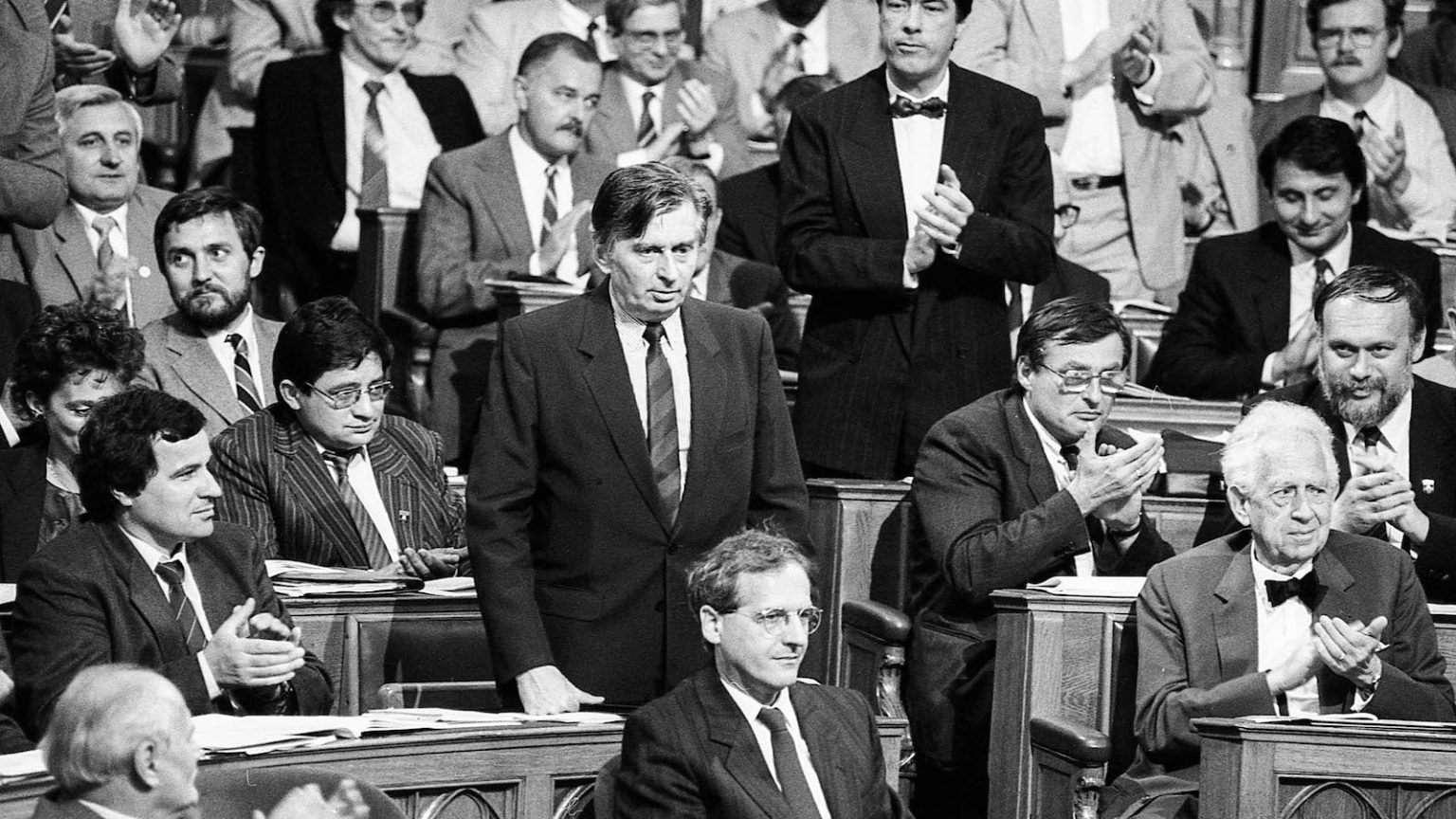
József Antall in Parliament in 1990. Photo: Fortepan/Zoltán Szalay
How was your relationship with Gyula Horn?
Let's just say it's interesting. I note that the other side could neither swallow nor spit it out. However, I remember that I once got very angry with "Gyufa" when St. II was here. Pope János Pál, and after the audience I asked Horn that "Mr. Prime Minister, in the course of your career you have talked with leading politicians of the most diverse talents and abilities, was there anything unique, something special about the Pope?". To which, after some reflection, he replied that "it wasn't". A world collapsed inside me...
Featured image: HírTv

